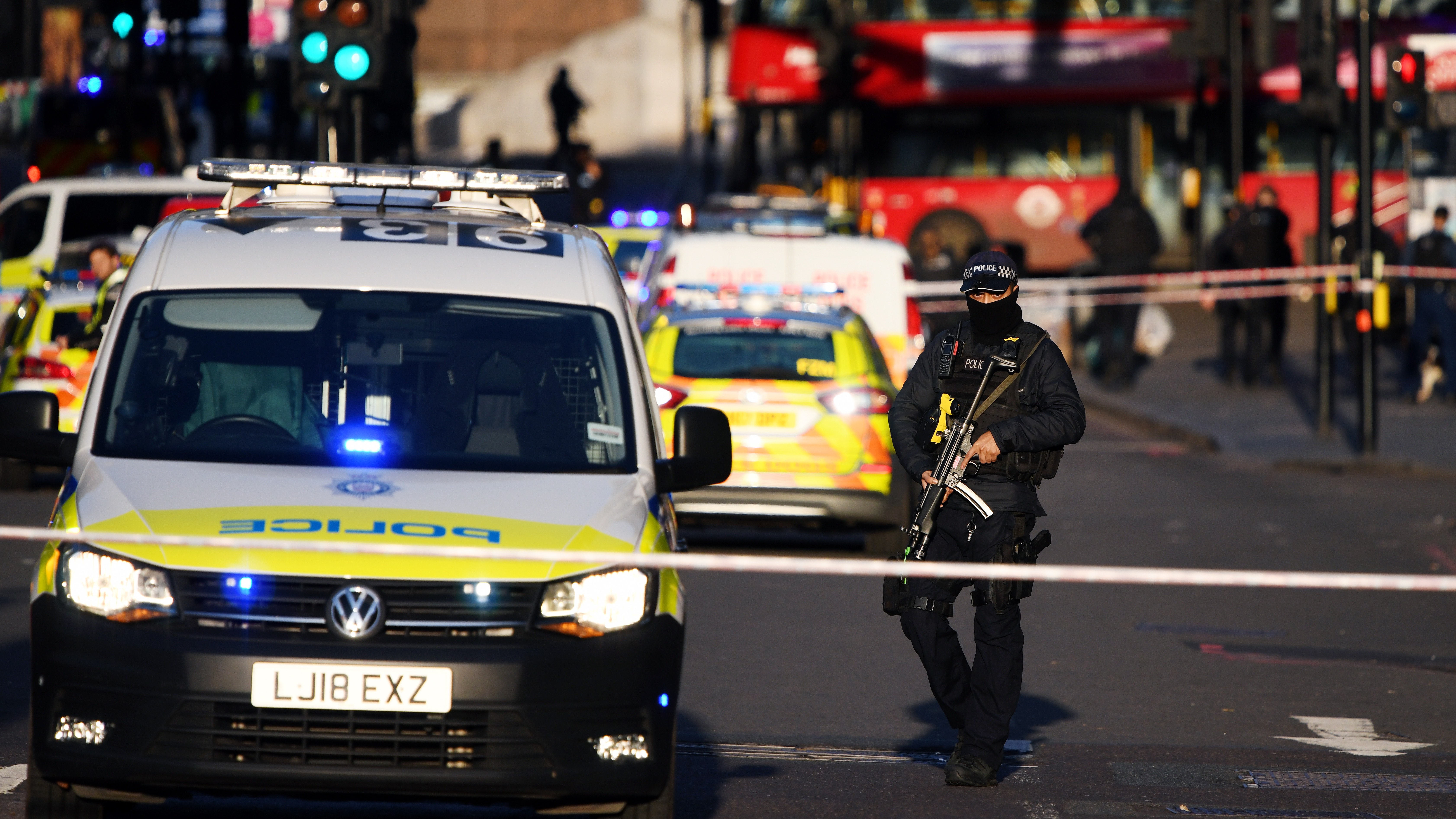London bridge attack: suspect had previous conviction for al-Qa’eda inspired bomb plot
Attacker named as Usman Khan was known to police and MI5 after previous conviction

A free daily email with the biggest news stories of the day – and the best features from TheWeek.com
You are now subscribed
Your newsletter sign-up was successful
The suspect shot dead by police officers during a knife attack on London Bridge has been named as a convicted terrorist who had recently been released from jail.
According to the Met Police, the suspect, Usman Khan, 28, was arrested in 2010 after pleading guilty to forming an al-Qa’eda-inspired terror cell that plotted to bomb the London Stock Exchange.
Metropolitan Police Commissioner Cressida Dick last night confirmed that two members of the public died in the attack and a man and two women are being treated in hospital.
The Week
Escape your echo chamber. Get the facts behind the news, plus analysis from multiple perspectives.

Sign up for The Week's Free Newsletters
From our morning news briefing to a weekly Good News Newsletter, get the best of The Week delivered directly to your inbox.
From our morning news briefing to a weekly Good News Newsletter, get the best of The Week delivered directly to your inbox.
According to a statement released by the NHS chief executive, Simon Stevens, one of the patients is in a critical but stable condition, a second person is in a stable condition and a third person has less serious injuries.
Who is Usman Khan?
Originally arrested in 2010, Usman Khan was part of a terrorist cell that had been planning to build a training camp in Pakistani-controlled Kashmir, on land owned by Khan’s family.
The Guardian reports that he was known to both the police and MI5 because of his previous conviction. Khan was wearing an electronic tag that monitored his movements when he carried out the attack.
A free daily email with the biggest news stories of the day – and the best features from TheWeek.com
Khan was convicted in 2012, aged 19, and released on licence in December 2018. He was originally classed as never to be released unless deemed no longer a threat but “this condition was later lifted”, The Guardian says.
Khan’s home in Stoke-on-Trent was bugged during the investigation and he was heard “discussing plans for the terrorist training camp” and “discussing terrorist fundraising”, The Times says.
The newspaper further reports that he was also heard saying he saw the three possible outcomes for himself and his fellow jihadists: “There’s victory, what we hope for, there’s shahada [death as martyrs], or there’s prison.”
Nine men, including Khan, pleaded guilty to plotting to bomb the London Stock Exchange, Big Ben, and Westminster Abbey. They also had a handwritten list of other potential targets including Boris Johnson, who was then mayor of London.
Khan, alongside two of the other men, were identified as “the more serious jihadists”.
How did the London Bridge attack unfold?
Khan was a guest at an event on prisoner rehabilitation held at the nearby Fishmonger’s Hall, according to The Times.
In a statement, Dick said that police were called to the attack at 1.58pm and that City of London police officers confronted the suspect at 2.03pm, five minutes later.
Witnesses told The Times that Khan first threatened to blow up the building, before stabbing “several people” and moving out onto London Bridge. Once on the bridge, witnesses tackled him to the pavement before he was shot dead by police due to fears that he may detonate his suicide vest, which later turned out to be fake.
Amy Coop, a writer and director who was also attending the prisoner rehabilitation event, tweeted that one witness “took a 5 [foot] narwhal tusk from the wall and went out to confront the attacker”.
Thomas Gray, a tour guide who helped restrain the suspect, told The Guardian that he saw people running, so ran towards the attack to try and apprehend the suspect.
“He had two knives on him, one in each hand, and it looked like they were taped to his hands. I stamped on his left wrist while someone else smacked his hand on the ground and kicked one of the knives away. I did what any Londoner would do and tried to put a stop to it.”
Videos yesterday circulated on social media, showing members of the public tackling the man and struggling to hold him down. A man wearing a suit and tie can be seen backing away from the struggle, holding a knife that has been taken from the suspect. Police appear to have fired two shots, heard on the video, after which Khan lay still on the ground.
Police have urged people to use “common sense and restraint” when considering posting pictures and videos of the incident online. They have however asked that the public shares any pictures or footage with their officers.
The Met also said more officers would be on duty across London to ensure public safety.
Joe Evans is the world news editor at TheWeek.co.uk. He joined the team in 2019 and held roles including deputy news editor and acting news editor before moving into his current position in early 2021. He is a regular panellist on The Week Unwrapped podcast, discussing politics and foreign affairs.
Before joining The Week, he worked as a freelance journalist covering the UK and Ireland for German newspapers and magazines. A series of features on Brexit and the Irish border got him nominated for the Hostwriter Prize in 2019. Prior to settling down in London, he lived and worked in Cambodia, where he ran communications for a non-governmental organisation and worked as a journalist covering Southeast Asia. He has a master’s degree in journalism from City, University of London, and before that studied English Literature at the University of Manchester.